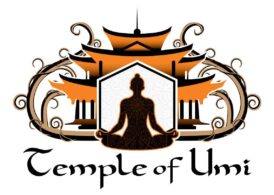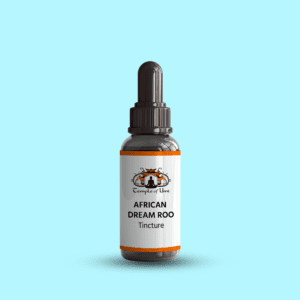Meditation benefits

By Temple of Umi

Table of Contents
Explore the profound meditation benefits—reduced stress, better focus, increased emotional balance, and more. Dive into the world of meditation and transform your life from the inside out.
Introduction
Meditation, a practice as ancient as time itself, has woven its presence through the tapestry of human history, offering solace and enlightenment to civilizations across the globe. Its origins, deeply rooted in the spiritual traditions of the East, have transcended boundaries, cultures, and epochs to emerge as a beacon of inner peace and self-awareness in our contemporary society. Today, amidst the din of our fast-paced world, meditation stands as a testament to the human quest for tranquility and mindfulness, drawing millions to its practice in search of solace and clarity.
The allure of meditation in modern times is undeniable. As science begins to unravel its profound benefits for the mind, body, and spirit, society’s interest in meditation has skyrocketed. This burgeoning fascination is not merely a trend but a reflection of a collective yearning for a deeper connection with ourselves and the universe around us. Meditation, in its myriad forms, offers a bridge to this understanding, making it a vital element of holistic well-being in the 21st century.
Understanding Meditation
What is Meditation? Exploring its Definitions and Forms
At its core, meditation is the art of introspection and awareness. In this deliberate practice, one focuses the mind, often on a particular object, thought, or activity, to achieve a mentally clear and emotionally calm state. However, defining meditation is akin to capturing the essence of the wind—it’s a simple and profound practice, varying widely across different traditions and individuals. From mindfulness meditation, which emphasizes present-moment awareness, to transcendental meditation, which focuses on transcending one’s thoughts to a state of pure consciousness, the forms of meditation are as diverse as the people who practice them. Learn more.
The Evolution of Meditation Practices Worldwide
Tracing the evolution of meditation reveals a fascinating journey across time and geography. Initially rooted in ancient India’s religious and spiritual practices, meditation has spread through Buddhist and Hindu traditions to the far corners of Asia, embedding itself in the cultural fabric of countries from China to Japan and beyond. Each culture adapted meditation to its spiritual needs, creating a rich mosaic of practices. In recent decades, the West has embraced meditation as a spiritual pursuit and a form of mental and physical wellness, leading to an explosion of interest and research into its benefits.
The Science Behind Meditation
Demystifying How Meditation Affects the Brain
The profound impact of meditation on the brain is a subject of intense scientific scrutiny. Research reveals that regular meditation can significantly change brain structure and function, including enhanced connectivity between regions associated with attention, self-awareness, and emotional regulation. These changes are not fleeting but can persist long-term, indicating that meditation can fundamentally rewire the brain for improved well-being.
The Physiology of Meditation: What Happens Inside Your Body?
Beyond the brain, meditation positively influences the body’s physiology. Meditation activates the body’s relaxation response, a state of rest that counters the stress response, leading to observable health benefits. Key changes include:
- Reduced blood pressure and improved cardiovascular health.
- Lowered levels of stress hormones, such as cortisol.
- Enhanced immune system function.
- Improved sleep quality and energy levels.
By fostering a state of deep rest, meditation enables the body to repair and rejuvenate, setting the foundation for lasting physical health and vitality. Learn more.

Mental Health and Emotional Well-being
Enhancing Mindfulness and Concentration
Meditation is a powerful tool for enhancing mindfulness and concentration, key components of mental health and emotional well-being. By focusing on the present moment and acknowledging thoughts without judgment, individuals can significantly improve their attention span and concentration levels. This process not only aids in reducing the clutter in one’s mind but also enhances the quality of work and personal life by fostering a deep awareness.
- Key Benefits:
- Improved attention span and focus
- Increased awareness of the present moment
- Enhanced clarity in thought and decision-making processes
Stress Reduction: A Closer Look at the Evidence
Numerous studies have validated the effectiveness of meditation in stress reduction. By inducing a state of relaxation, meditation decreases the production of stress hormones, such as cortisol, and promotes peace and calm. This physiological response to meditation has been linked to improved symptoms of stress-related conditions, showcasing meditation as a viable non-pharmacological approach to stress management.
- Evidence Highlights:
- Reduction in cortisol levels
- Lowering of heart rate and blood pressure
- Improvement in symptoms of stress-related disorders
Meditation as a Tool for Anxiety Management
Anxiety, a prevalent mental health issue, can be significantly alleviated through regular meditation practice. Meditation teaches the mind to focus on the present, reducing the tendency to ruminate over past or future worries. This shift in focus can decrease the frequency and intensity of anxiety attacks, offering a natural and empowering way to manage anxiety symptoms.
- Anxiety Management Techniques:
The Role of Meditation in Combating Depression
Meditation contributes to the management and reduction of depression by fostering a positive mindset and altering the brain’s response to stress and negative thoughts. Practices such as mindfulness meditation have been shown to improve the symptoms of depression, potentially by enhancing neural plasticity and increasing the levels of neurotransmitters associated with mood regulation.
- Depression Alleviation Strategies:
- Regular practice of mindfulness and compassion-focused meditation
- Integration of meditation with other therapeutic approaches
- Building a supportive community or practice group. Learn more.
Physical Health Benefits
Meditation and Blood Pressure: Connecting the Dots
High blood pressure is a risk factor for cardiovascular diseases that can be effectively managed with meditation. By promoting relaxation and reducing stress, meditation can lead to vasodilation and a subsequent decrease in blood pressure. This non-invasive approach offers a complementary method to traditional treatments, highlighting the role of mental well-being in cardiovascular health.
- Blood Pressure Management:
- Regular meditation sessions
- Integration with dietary and lifestyle changes
- Monitoring and tracking progress
Boosting the Immune System Through Mindful Practices
Meditation’s impact on the immune system is profound. Meditation practices can enhance the body’s natural defense mechanisms by reducing stress and balancing the body’s response to inflammation. This boost in immune function is crucial for preventing illnesses and promoting overall health and longevity.
- Immune System Enhancement:
- Increased production of antibodies
- Improved cell-mediated immunity
- Reduction in inflammatory markers
Pain Management: How Meditation Can Help
Chronic pain affects millions worldwide, and meditation offers a promising avenue for pain management. By altering the perception of pain, meditation can lead to significant reductions in pain intensity and improve the quality of life for those suffering from chronic pain conditions. This mind-body approach empowers individuals to manage pain through inner resources, reducing reliance on medications.
- Pain Reduction Strategies:
- Mindfulness-based stress reduction (MBSR)
- Visualization and body scan techniques
- Developing a pain management routine
The Impact of Meditation on Heart Health
The heart is the center of our physical being and benefits immensely from meditation. The practice has been linked to lower rates of heart disease, attributed to its effects on blood pressure, stress levels, and the autonomic nervous system. By fostering a state of relaxation, meditation contributes to heart health, offering a holistic approach to preventing heart-related conditions.
- Heart Health Benefits:
- Reduction in risk factors for heart disease
- Improvement in heart rate variability
- Enhanced overall cardiovascular health. Learn more.
Personal Growth and Productivity
Meditation and Creativity: Unlocking Your Inner Genius
The journey of meditation offers a path to unlocking the boundless potential of our minds, particularly in fostering creativity. Meditation clears the mental clutter, allowing for an unobstructed flow of innovative thoughts and ideas. By cultivating a practice of stillness, we invite the muse of creativity into our lives, often leading to breakthroughs and fresh perspectives. The quietude meditation is not just silence but a canvas for the vibrant colors of creative ideas.
- Key Benefits:
- Enhances open-mindedness and the ability to view problems from new angles.
- Boosts the ability to make connections between seemingly unrelated concepts.
- Provides the mental clarity needed for artistic expression.
Improving Memory and Cognitive Function Through Meditation
Meditation’s benefits extend beyond emotional well-being to significantly impact cognitive abilities. Regular meditation practices have been shown to improve memory retention, focus, and overall cognitive function. This enhancement in mental faculties is attributed to meditation’s role in increasing gray matter density in brain regions associated with these cognitive processes.
- Key Takeaways:
- Improves short-term and long-term memory capabilities.
- Enhances concentration, making learning and task completion more efficient.
- Supports healthy brain aging, potentially reducing the risk of cognitive decline.
How Meditation Can Enhance Your Work Performance
Meditation is a powerful tool to boost productivity and performance in the fast-paced modern work environment. By reducing stress and improving concentration, meditation helps manage time and tasks more effectively. A calm mind is better equipped to handle work challenges, make sound decisions, and maintain a positive outlook toward professional responsibilities.
- Workplace Benefits:
- Reduces feelings of burnout and enhances overall job satisfaction.
- Improves problem-solving and creative thinking abilities.
- Fosters a greater sense of empathy and understanding in team interactions. Learn more.
Meditation and Lifestyle
Integrating Meditation into Your Daily Routine
Incorporating meditation into your daily life can transform mundane routines into moments of mindfulness and peace. Starting or ending your day with meditation sets a calm tone and intention, influencing how you engage with the world. Even brief sessions can make a significant difference in your overall well-being.
- Simple Integration Tips:
- Dedicate a specific time each day for meditation to establish consistency.
- Use everyday activities like walking or waiting as opportunities for mindfulness practice.
- Leverage technology with meditation apps to guide your practice and remind you to take mindful breaks.
Building a Meditation Habit: Tips and Strategies
Developing a consistent meditation practice is vital to reaping its full benefits. Like any habit, it requires intention, repetition, and patience. Setting realistic goals, celebrating small milestones, and being gentle with yourself when challenges arise can sustain your meditation journey.
- Habit-Forming Strategies:
- Start with short, manageable sessions and gradually increase duration.
- Create a dedicated meditation space that invites tranquility.
- Engage with a meditation community or partner for motivation and support.
Meditation Spaces: Creating Your Sanctuary for Stillness
Your meditation space is a personal sanctuary for tranquility and introspection. This space doesn’t need to be elaborate; it simply needs to be a dedicated area where you can retreat into silence and stillness. The environment you create should inspire calmness and be free from distractions.
- Designing Your Space:
- Choose a quiet corner of your home that feels safe and comfortable.
- Incorporate soft lighting, cushions, or calming scents to enhance the atmosphere.
- Keep the space tidy and inviting, making it an area you look forward to spending time in.
Integrating meditation into our daily lives and cultivating environments that nurture silence and reflection can improve our personal growth, productivity, and overall lifestyle. Learn more.
Advanced Meditation Techniques
Exploring Beyond the Basics: Vipassana, Zen, and TM
Once the foundational practices of meditation become a comfortable part of your routine, the path unwinds into more profound and intricate techniques that promise tranquility, transformative insights, and heightened awareness. Among these advanced methodologies are Vipassana, Zen, and Transcendental Meditation (TM), each offering unique perspectives and benefits:
- Vipassana: Rooted in ancient Buddhist teachings, Vipassana meditation is the practice of profound, insightful observation. It encourages practitioners to explore the very nature of reality by focusing on the interconnection between mind and body, observing sensations with a detached, non-judgmental awareness. The ultimate goal? To achieve a state of enlightenment through self-discovery and mindfulness.
- Zen: Zen meditation, or Zazen, is the heart of Zen Buddhism. It emphasizes the practice of ‘sitting meditation,’ where the focus is placed on the breath and observing thoughts and actions without attachment. This practice aims to cultivate open awareness and presence, leading to a profound understanding of one’s true nature.
- Transcendental Meditation (TM): TM is a simple yet powerful technique where individuals silently repeat a mantra—a sound, word, or phrase—in a specific manner. This practice transcends ordinary thought to reach a pure consciousness, promoting deep relaxation, stress reduction, and overall well-being.
The Journey Deeper: Retreats and Intensive Practice
Participating in meditation retreats or engaging in intensive practice can be incredibly rewarding for those seeking to deepen their meditation practice. These experiences offer:
- Structured Environment: Retreats provide a supportive and distraction-free environment, allowing deeper exploration of meditation practices.
- Guided Sessions: Experienced instructors provide guidance, helping to refine techniques and overcome obstacles.
- Community Support: Being surrounded by a community of like-minded individuals fosters motivation and a sense of shared experience. Learn more.

Final words
Summarizing the Transformative Power of Meditation
Meditation is not just a practice but a journey towards self-discovery, peace, and enlightenment. From stress reduction and improved mental health to enhanced physical well-being and personal growth, the benefits of meditation are profound and far-reaching. Whether you are drawn to the simplicity of mindfulness or the depth of advanced techniques like Vipassana, Zen, or TM, meditation offers a path to a more fulfilled, peaceful, and aware existence.
Encouraging the Reader to Start Their Meditation Journey
If you still need to embark on your meditation journey, there’s no better time than now. Please start with the basics, explore different practices, and remember that the journey is as important as the destination. Meditation is a personal exploration—a space to discover your inner strength, calm, and clarity. Let meditation be your guide to a more prosperous, more centered life. Welcome to your journey of transformation.
- Sacred Plant Medicine Retreats in Georgia
- 5 Ayahuasca Retreats in California Worth Exploring
- 7 Best Aya Retreats in America. Click here.
- Mcdonough Ayahuasca retreat
- Conley Ayahuasca retreat
- Whitesburg Ayahuasca retreat
- Brooks Ayahuasca retreat
- Gay Ayahuasca retreat
- Williamson Ayahuasca retreat
- Orchard Hill Ayahuasca retreat
- Glenn Ayahuasca retreat
- Luthersville Ayahuasca retreat
- Shady Dale Ayahuasca retreat
- Bowdon Junction Ayahuasca retreat
- Sargent Ayahuasca retreat
- Greenville Ayahuasca retreat
- Lovejoy Ayahuasca retreat
- Winston Ayahuasca retreat
- Rutledge Ayahuasca retreat
- Moreland Ayahuasca retreat
- Molena Ayahuasca retreat
- Lebanon Ayahuasca retreat
- Good Hope Ayahuasca retreat
- Haralson Ayahuasca retreat
- An Inclusive List of Psychedelic Quotes
- Mount Ayahuasca retreat
- Grantville Ayahuasca retreat
- Pine Lake Retreat near
- Rydal Ayahuasca retreat
- Porterdale Ayahuasca retreat
- Waco Ayahuasca retreat
- Temple Ayahuasca retreat
- Bethlehem Ayahuasca retreat
- Jenkinsburg Ayahuasca retreat
- Adairsville Ayahuasca retreat
- Red Oak Ayahuasca retreat
- Woodbury Ayahuasca retreat
- Cassville Ayahuasca retreat
- Redan Ayahuasca retreat
- North Decatur Ayahuasca retreat
- Grantville Ayahuasca retreat
- Hillsboro Ayahuasca retreat
- Jackson Ayahuasca retreat
- Braselton Ayahuasca retreat
- Zebulon Ayahuasca retreat
- Flovilla Ayahuasca retreat
- Auburn Ayahuasca retreat
- Warm Springs Ayahuasca retreat
- Scottdale Ayahuasca retreat
- Lithia Springs Ayahuasca retreat
- Villa Rica Ayahuasca retreat
- Grayson Ayahuasca retreat
- Sunny Side Ayahuasca retreat
- Senoia Ayahuasca retreat
- Locust Grove Ayahuasca retreat
- Chamblee Ayahuasca retreat
- Fairburn Ayahuasca retreat
- Snellville Ayahuasca retreat
- Monticello Ayahuasca retreat
- Union City Ayahuasca retreat
- Tallapoosa Ayahuasca retreat
- Bremen Ayahuasca retreat
- Hampton Ayahuasca retreat
- Monroe Ayahuasca retreat
- Marble Hill Ayahuasca retreat
- Madison Ayahuasca retreat
- Dawsonville Ayahuasca retreat
- Felton Ayahuasca retreat
- Concord Ayahuasca retreat
- Mansfield Ayahuasca retreat
- Taylorsville Ayahuasca retreat
- Roopville Ayahuasca retreat
- Turin Ayahuasca retreat
- Franklin Ayahuasca retreat
- Clarkdale Ayahuasca retreat
- Talking Rock Ayahuasca retreat
- Jersey Ayahuasca retreat
- Kingston Ayahuasca retreat
- Bostwick Ayahuasca retreat
- North Metro Ayahuasca retreat
- Meansville Ayahuasca retreat
- Social Circle Ayahuasca retreat
- White Ayahuasca retreat
- Rhode Island Ayahuasca retreat
- Maryland Ayahuasca retreat
- Delaware Ayahuasca retreat
- New Jersey Ayahuasca retreat
- Connecticut Ayahuasca retreat
- Massachusetts Ayahuasca retreat
- Hampshire Ayahuasca retreat
- Pennsylvania Ayahuasca retreat
- New York Ayahuasca retreat
- Florida Ayahuasca retreat
- South Carolina Ayahuasca Retreat
- North Carolina Ayahuasca Retreat
- West West Virginia Ayahuasca retreat
- Virginia Ayahuasca retreat
- Ohio Ayahuasca retreat
- Alabama Ayahuasca retreat
- Mississippi Ayahuasca retreat
- Tennessee Ayahuasca retreat
- Kentucky Ayahuasca retreat
- IndianaAyahuasca retreat
- ILLINOIS Ayahuasca retreat
- Missouri Ayahuasca retreat
- Arkansas Ayahuasca retreat
- Louisiana Ayahuasca retreat
- Texas Ayahuasca retreat
- Oklahoma Ayahuasca retreat
- KansasAyahuasca retreat
- Ayahuasca retreats near me in Experiment.
- A wellness retreat in Georgia
- What is Ayahuasca?
- Embark on a Journey of Transformation with Spiritual Healing
- Unveiling Healing Energy at the Temple of Umi
- 10 Energy Healing Techniques to Transform Your Life
- Where to get Ayahuasca in the USA
- Top Ayahuasca retreats in the USA. Learn more.
- Cost of Ayahuasca Retreat: Balancing Cost and Experience. Learn more.
- What is trauma bonding?
- A Journey into the Healing Properties of Psychedelic Mushrooms. Learn more.
- Ayahuasca Retreat Georgia – Experience Spiritual Awakening
- Spiritual Retreats Georgia
- Shaman in America Exploration
- Shamanism – Shamanic healing
- Shaman Healing Guide
- Ayahuasca ceremonies Ayahuasca ceremonies near you in the USA
- Ayahuasca Experience
- DMT Journey, Benefits, and Side Effects
- Iowaska – What is it?
- Plant medicine retreats in Georgia
- Why massage is beneficial, according to a cardiologist.
- Are mushrooms truffles – What Is a Truffle?
- 11 Best Ayahuasca Retreats in the USA for Spiritual Healing
- What is Rapé?
- What is a Tincture?
- Where to find Ayahuasca near me
- Healing retreats USA
- Best Retreats USA








